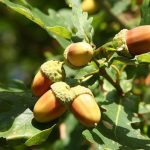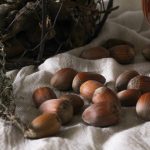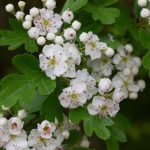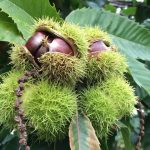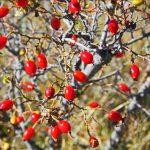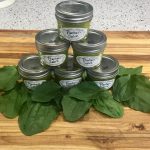Acorn – Oak
The Oak tree is the most common in Britain, the acorn that has the potential to become a tree have been a source of food and medicine for many cultures around the world throughout the ages.
The trees are a common sight and are all around us; unfortunately, rare are the people who bother with this wonderful resource. The issue with the nuts is not their flavour, but the time and effort involved to make them edible for us humans.
Acorns are packed in tannins; which is a compound that makes them astringent, therefore they must be processed or “leached” to make them palatable.
The oak tree has a long history of medicinal use and it has been valued for its astringent properties. All parts of the oak, including wood, bark, leaves, acorns and galls, have been used for medicinal purposes.
How to Prepare
The Native Indians were experts with Acorn processing or leeching, involving a process of many days hard work to produce an edible flour to make breads, after collecting the nuts they would crack the nut just enough to leave a split in the shell then the nuts were put in fine cloth or nets and put in a running stream for 1 – 2 days.
When the nuts had been leached, the nuts were dried, removed from their shells and crushed into a fine flour.
Natural tannin-leaching can occur in the wild. If you find acorns in the spring under layers of leaves, chances are, the rain water will have leached out some or much of the tannins. In fact, some animals especially squirrels bury their nuts for this very reason!
The nuts are very nutritious and provide a complete vegetable protein, the starch, which is the toughest thing to forage for. Nutty and sweet, they provide an alternative gluten-free version for regular grain flours that contains large amounts of protein, carbohydrates and fats.
Nutritional Profile of Acorn
Though the exact nutrient profile depends on the species of acorn, all are packed with essential nutrients.
- Vitamin A:
- Vitamin E:
- Iron:
- Manganese:
- Potassium:
- Vitamin B6:
- Folate:
In Greek mythology, the oak was a sacred tree associated with Zeus, the supreme god. To this day, Zeus’s oracle in Epirus has the sacred oak in the middle of the grove, and priests would try to uncover messages from the gods by interpreting the rustling of the oak’s leaves.
It is no coincidence that oak trees are more prone to lightning strikes than many other trees. This is because of the tree’s high water content and the fact that they are frequently the tallest living things in the landscape. More articles here.

